Jakarta can feel oppressive for residents and visitors. If you’ve heard stories about the traffic, the reality is much worse. As in any city though, there are many people doing good things. Journalists Fergus Jensen and Rebecca Henshcke have been living in Jakarta for around 15 years. For the last nine of those they have been in a rented house in Menteng, which has become their oasis in an urban jungle.
I interviewed Fergus about keeping chickens, planting trees and learning aquaponics in Central Jakarta.
ME: How did your interest in sustainability begin?
FJ: It just started as a hobby. It began with trees. Back in Australia, I was interested in bush foods and collected local trees. I experimented on a block north of Sydney. So, when I first moved to Indonesia I kept going. I was interested in all the small farms around Yogyakarta, and learnt about growing plants from talking to people. Having chickens seemed like not a big deal there. Everybody had them. Everyone was growing things.
When I moved to Jakarta. I collected seeds like assam (tamarind), and started germinating them- many were sengon – a very common South American tree that grows large and provides shade.
As they grew I had to find homes for them so I planted them in the park near our house. That park is a really valuable green space for this neighbourhood. When we first moved here it was neglected. There was glass and building materials and rubbish everywhere, and you wouldn’t let your kids play there, but it gets looked after now, and valued by the community.
A couple of years ago the Jakarta governor – Ahok – decided to ‘clean it up’. They put in a shelter area where people can gather and repaired the basketball courts, gave it some new grass and topsoil and garden beds and now lots of people hang out there all the time. I think the trees we planted there played big a part in that transition and gave recognition to the space –it used to be barren and neglected.
There’s a lot of wasted space even in the middle of this city, even though it’s home to millions of people, and lots more places that could be converted to parkland.
I hope the new administration continues expand parks, nature strips and footpaths and can claw back some of that land because the city really needs them.
ME: How about the aquaponics?
FJ: I got interested in aquaponics as a hobby too. I like to tinker, to work out systems and put things together and I taught myself online by joining a forum and asking lots of questions. I grew beans, bok choi, lettuce, basil and it worked well for a while but it’s a high-maintenance hobby and took a while to get it working right – lots of trips to the hardware store, fish, aquariums and pump shops and research. There’s so many variables – water levels, power, sunlight, water quality, growing media and bugs – and eventually I started to focus on things that didn’t need so much daily attention..
And I keep chickens too. I had about 40 earlier this year, but most of them were wiped out when a disease came through, and only about 3 survived. That’s Jakarta… I am interested in uniquely Indonesian chickens like the ‘jungle fowl’ and cemani. But animals are really vulnerable in this city, like people. There are so many bugs they can pick up.
ME: Is there any problem with the neighbours?
FJ: Our neighbours hold weekly gatherings for the Batak church, and so relatively the noise from the chickens is probably not such a big deal.
But rubbish is a bit of a problem in our neighbourhood and in Jakarta in general. The system for waste collection and disposal hasn’t really evolved yet so you still see piles of loose rubbish outside people’s houses around here and everywhere. Organic and plastic waste are mixed. Separation of recyclables often only happens after waste is collected. Every weekend visitors to the park over the road leave behind their waste on the grass. People still burn garbage in some cases and it’s difficult to change that way of doing things, especially as an outsider, like anywhere, I suppose.
It took a long time to explain to the local street sweeper that leaves are OK to leave behind, plastics not so great. Aesthetics and cultural traditions play a big part in that I think. You see parks and public spaces being swept, religiously, on a daily basis – leaves and plastic wrappers get bundled up into piles and burnt – and people see leaves as dirty and housing mosquitoes. What’s really weird is seeing this happen even where only bare earth is left behind– and when it rains it turns to mud. I think it’s a really culturally embedded thing about leaves. Some people freak out when they see our garden for that reason.
Trees also get pretty rough treatment here when it comes to pruning. Real hack jobs – sometimes leaving just a vertical stump to regrow. Again there are cultural issues with trees. Some people have told us there are spirits in the jambu (guava) tree at the front of our house. They say our garden is overgrown, but I think the objection runs deeper than that and it often seems like there are objections for whatever reason.
We were told our bamboo grove is home to snakes. Some visitors ask why we don’t “clean it up”. The bamboo grows over the fence and makes work for our neighbor who has to sweep up the leaves. We are told our trees are too close to the power lines even when everywhere in the street it’s no issue. And some have simply said ‘we don’t like the look of the garden’. For some it’s not about whether trees are productive or useful, and that’s frustrating. But others really love it and see it as an oasis.
ME: How do you source materials you need?
FJ: I collect fallen seeds on the ground. We get soil from a nursery. I collect bits and pieces. In Indonesia they use burnt rice husks mixed with red soil and fertilizer. It’s a really great growing medium. I get a lot of help with this kind of thing from friends and neighbours and people in the kampung (neighbourhood). This is a way to learn about things like that here — chat and hang out, ask questions.
ME: Why do you do these projects?
FJ: I have a an interest in urban agriculture because its about self sufficiency and knowledge and sustainability — well at least aiming for something more sustainable. We have such a long way to go, and I guess I like the challenge
This house and garden is lots of things for us though. In Jakarta you need an oasis. Most of the city feels barren, like a concrete jungle. Some schools are in high-rises, offices are in high-rises. Bringing up kids, you want them to have some contact with nature.
Its not just physical appearance, it’s the role of the city, how people live. Some people in Jakarta are so removed from nature and from how food is grown, but not far away in other parts of West Java people are doing pretty intensive small-scale agriculture very well. And we are renting here, but wherever we live we will try to do this kind of thing.
Urban development should be about maintenance and repair. We don’t need new cities, we need to make these ones better.
I would love to experiment in Australia again, but for now I’m here. I often have morning meetings online and there will be chickens clucking in the background. My colleagues laugh about it and just see it as a quirky thing I do.
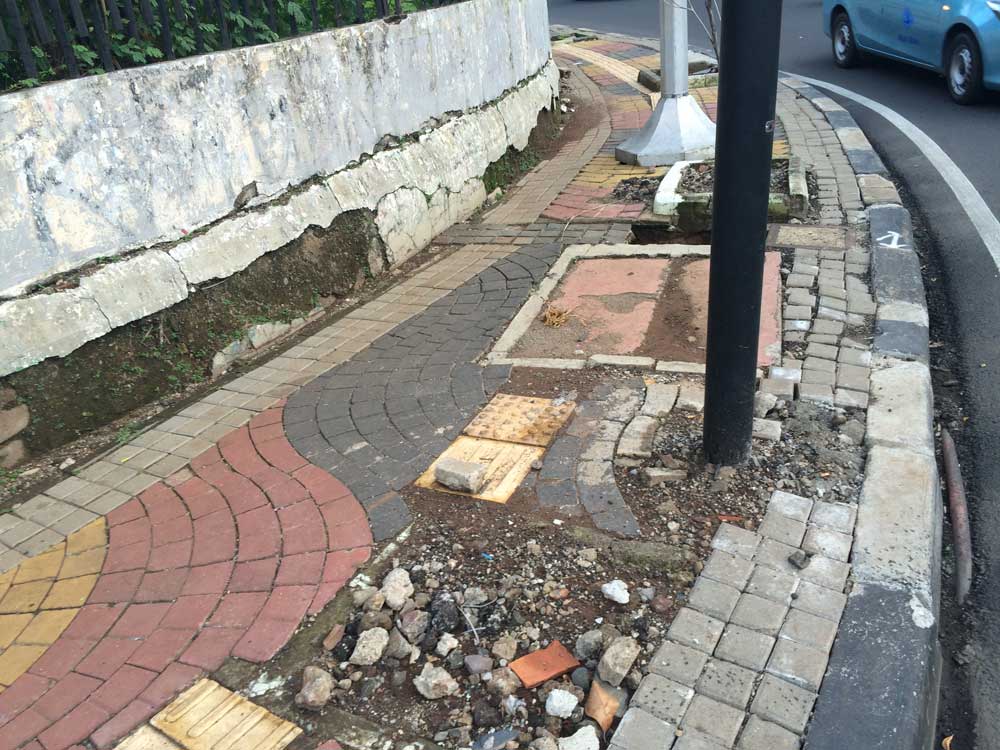
Potential green space at Jakarta’s street edge.
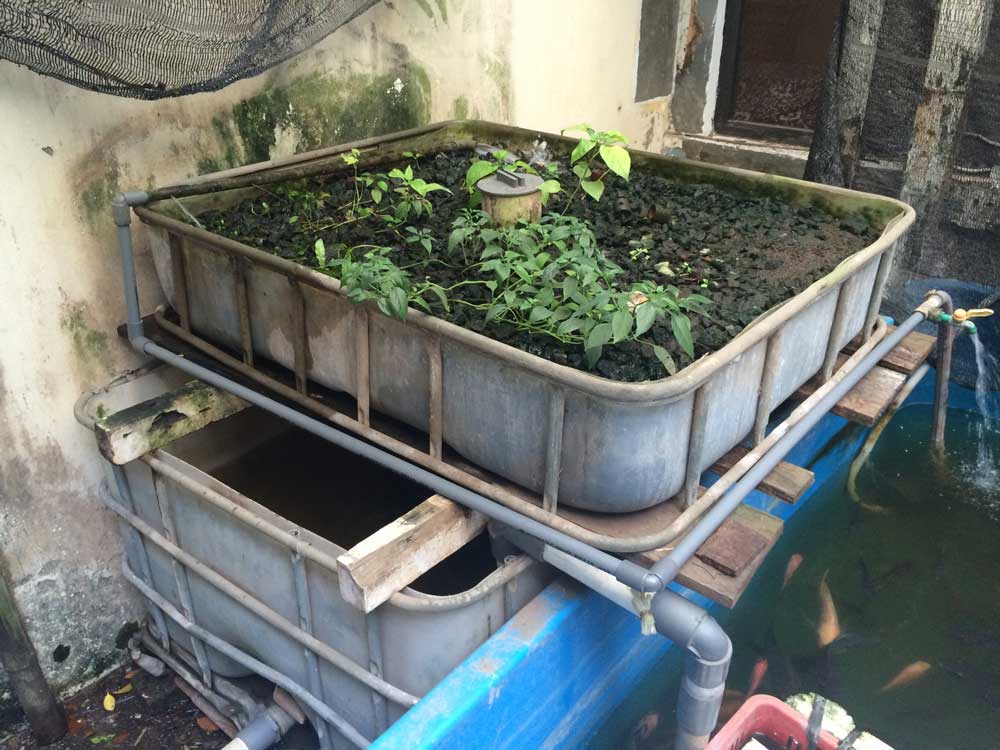
DIY aquaponics system
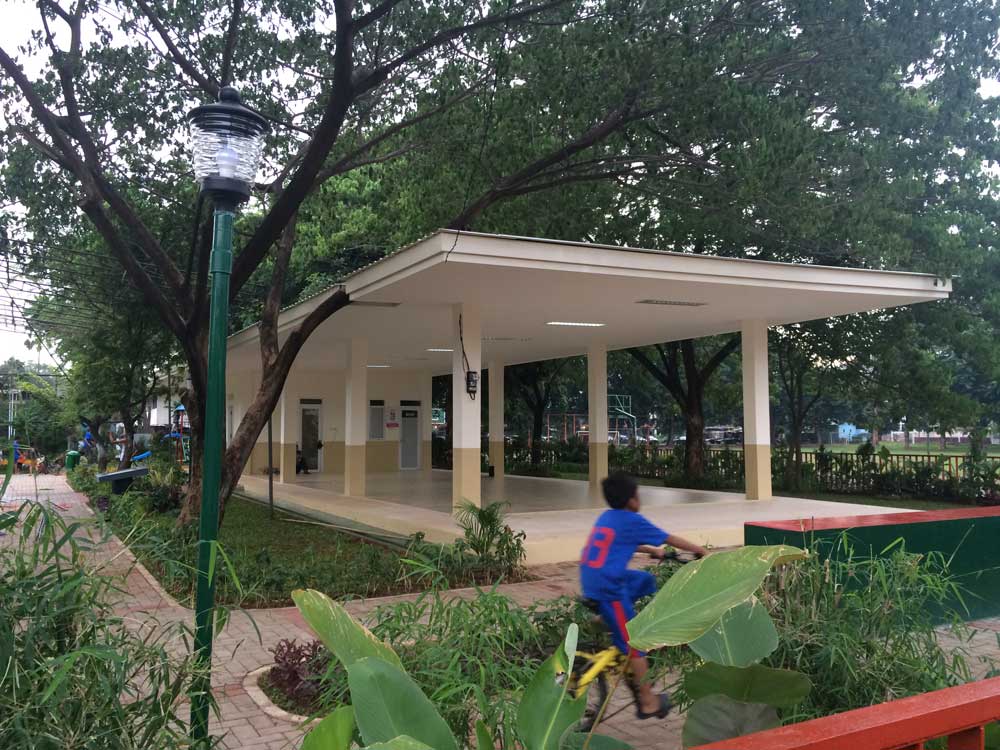
Green Space in central Jakarta
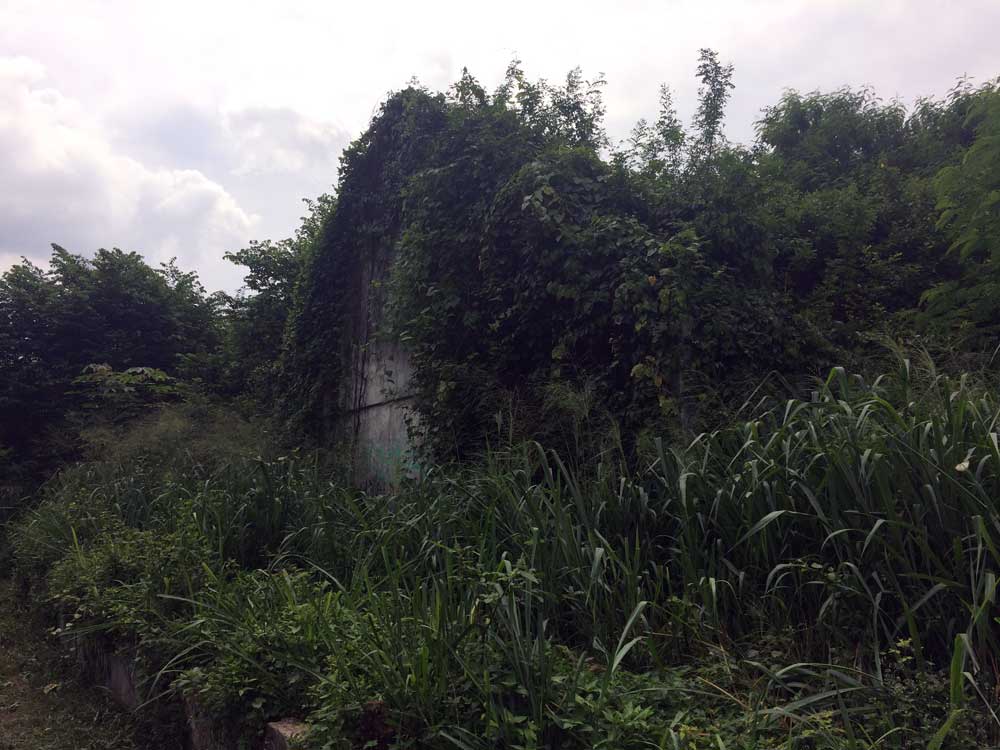
Green space potential in central Jakarta

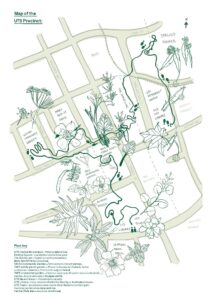
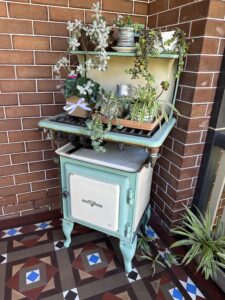
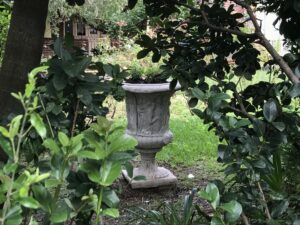
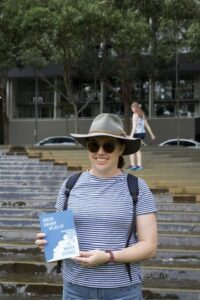
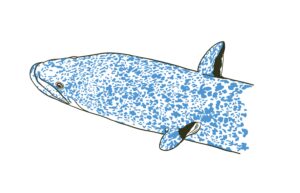
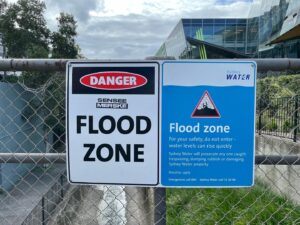
0 Comments